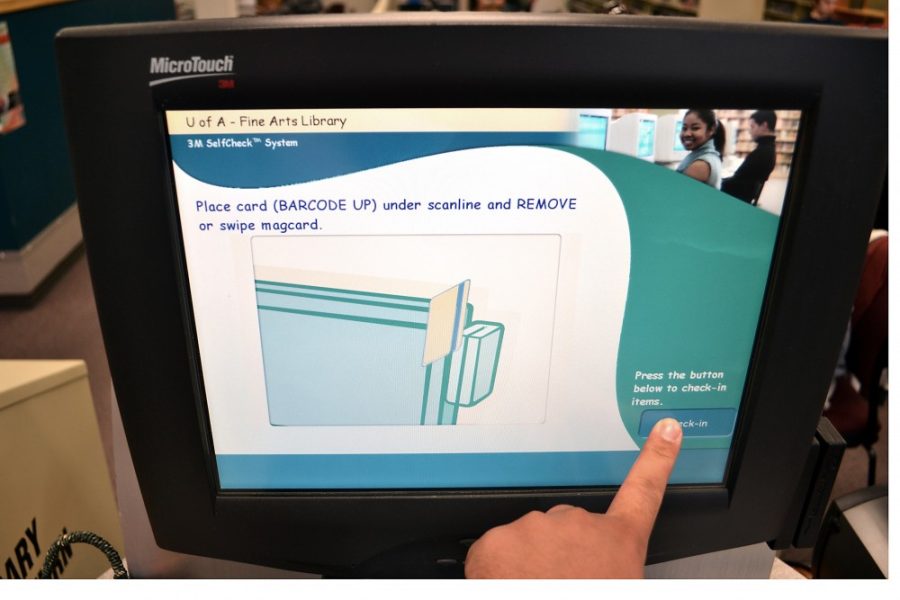That touch screen at the checkout counter is probably dirtier than you think.
More than 60 percent of grocery and hardware store touch screens examined in a roughly three-month UA study had fecal bacteria on them. Several were contaminated with E. coli and one contained MRSA, contagious staph bacteria.
No one’s ever studied touch screens as mediums for transferring germs from one person to another, said Chuck Gerba, the soil/water and environmental sciences professor who designed the study.
You can pick up between 20 and 30 percent of the germs someone else leaves behind on a hard surface, Gerba said.
“ATM machines, mobile phones, iPads … germs are always being transferred to a surface,” he said. “We’re a button-pushing world and your generation, college students, touch more buttons than any generation in history.”
College age students touch their faces 16 times per hour, which transfers the germs, Gerba said.
“You guys are always sticking your fingers in your face,” he added.
Ty Rouzan, a pre-business student, said the nastiest part of the study is the amount of fecal bacteria found on the touch screens.
“That’s disgusting, people need to Purell themselves,” he said. “I see people walking out of the bathroom all the time without washing their hands and I’m stuck standing there doing a double take.”
The fecal bacteria probably comes from people not cleaning themselves properly after using the bathroom or from handling raw meat products in grocery stores, Gerba said.
Rouzan said the library’s book checkout and check-in touch screens are probably the dirtiest on campus. Because they’re used so often, it’s impossible for the library staff to keep up with cleaning them, he said.
The library custodial staff cleans the express checkout and check-in machines daily, said Robyn Huff-Eibl, team leader for access and information services for the UA libraries.
There are also Purell instant hand sanitizer stands at all of the library public service desks for anyone to use, she said.
Carol Underwood, a dining services attendant lead at On Deck Deli, said employees make a point of wiping down the cashier’s touch screen and that she washes her hands frequently.
Deandra J. Roberts, a graduate student studying higher education administration, said the study’s results were gross, but not surprising considering how often touch screens are used.
“And it makes me think twice about using kiosks,” she said. “If everyone did their part and washed their hands, society would be healthier and a lot better off.”
Since it’s not practical to wipe down a touch screen every five minutes, Gerba recommended people use hand sanitizer and wash their hands frequently.
“We don’t want to make people paranoid about germs. We’re trying to raise awareness about good hand hygiene and where it’s important to disinfect,” he said. “The idea is to keep the odds in your favor, not the germs. The solution is in your hands.”









